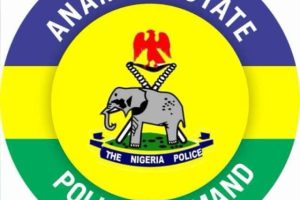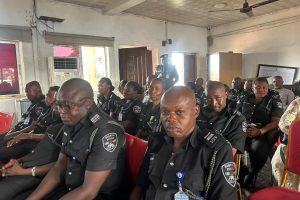Prominent politicians from the South-East on Tuesday met and resolved to unite across party lines to work for the emergence of Nigeria’s president of Igbo extraction in 2023.
They met under the auspices of South-East Political Leaders at Sen. Orji Kalu’s Camp Neya country home in Igbere, Bende Local Government Area of Abia.
In a five-point communique issued at the end of the meeting, they implored “all the political parties to cede their presidential tickets in the 2023 general election to the southeast.”
They opined that such gesture would be “in the interest of justice, equity, and national unity.”
They resolved that the zone, “with a substantial presence in every part of the country”, would give bloc vote and full support to any of the two major political parties that nominated their presidential candidates from the zone.
The communique, which was read to newsmen by the former Secretary to the Government of the Federation, Sen. Pius Anyim, stated that a president from the zone “will work to unite and develop every part of the country.
“Such a president will be president of all Nigerians, irrespective of their political, ethnic, and religious backgrounds.”
It also promised that such a president would ensure “that all citizens and every part of the country is given a sense of belonging and treated with the utmost sense of justice.
“Such was the dream of the founding fathers of this great nation, wherefore they declared that ‘though tribe and tongue may differ, in brotherhood we stand’.
“For the same reason, they also committed to building a just nation, where no man is oppressed so that Nigeria may be blessed with peace, plenty, and prosperity,” the communique added.
The group implored Nigerians across political, ethnic, religious, and geopolitical divides to support the zone’s aspiration in 2023 “as a mark of good faith and to promote justice and national harmony.”
It described such support as vital “in giving every part of the country a sense of belonging and in promoting national unity and solidarity.
“It is the loudest reassurance of equality of all parts and that the country indeed belongs to all members of the Nigerian commonwealth.”
The political leaders restated their commitment to “the deepening of the nation’s democracy as the surest way to fast-track national development and building an egalitarian society, where no man is oppressed for reasons of class, ethnic, religious or political affiliation.”
Newsmen report that aside from Kalu and Anyim, other eminent Igbo politicians at the meeting included former Deputy Senate President, Sen. Ike Ekwerenmadu, Rep. Nkeiruka Onyejeocha, Rep. Toby Okechukwu, Deputy Chief Whip and Deputy Minority Leader of the House of Representatives.
Others were Sen. Michael Nnachi from Ebonyi, one-time Minister of State for Environment, Housing and Urban Development, Mr Chuka Odom, former Speakers of Abia House of Assembly, Chief Stanley Ohajuruka and Mr Chikwendu Kalu, and National Chairman of the United Progressives Party, Chief Chekwas Okorie, amongst others.
In an opening remark, the convener of the meeting, Kalu, said the gathering was intended to unite all the prominent politicians from the zone and ensure the unity of purpose among them for the emergence of Nigeria’s next president from the zone.
He said that the meeting would help to disprove critics, “who believe that we cannot meet to discuss issues affecting us, especially our aspiration to produce Nigeria’s president in 2023.”
Others who spoke in a similar vein, including Ekwerenmadu, Anyim, Onyejeocha, Okorie, and Odom, were in unison that 2023 was the turn of the zone to produce the nation’s president.
They observed that the nation’s presidency had rotated between the northern and southern Nigeria and that the South-West and South-South had taken their turns for southern Nigeria.
They, therefore, contended that “the southeast is the only zone in the south that has yet to produce a president in the current democratic dispensation.










Add Comment